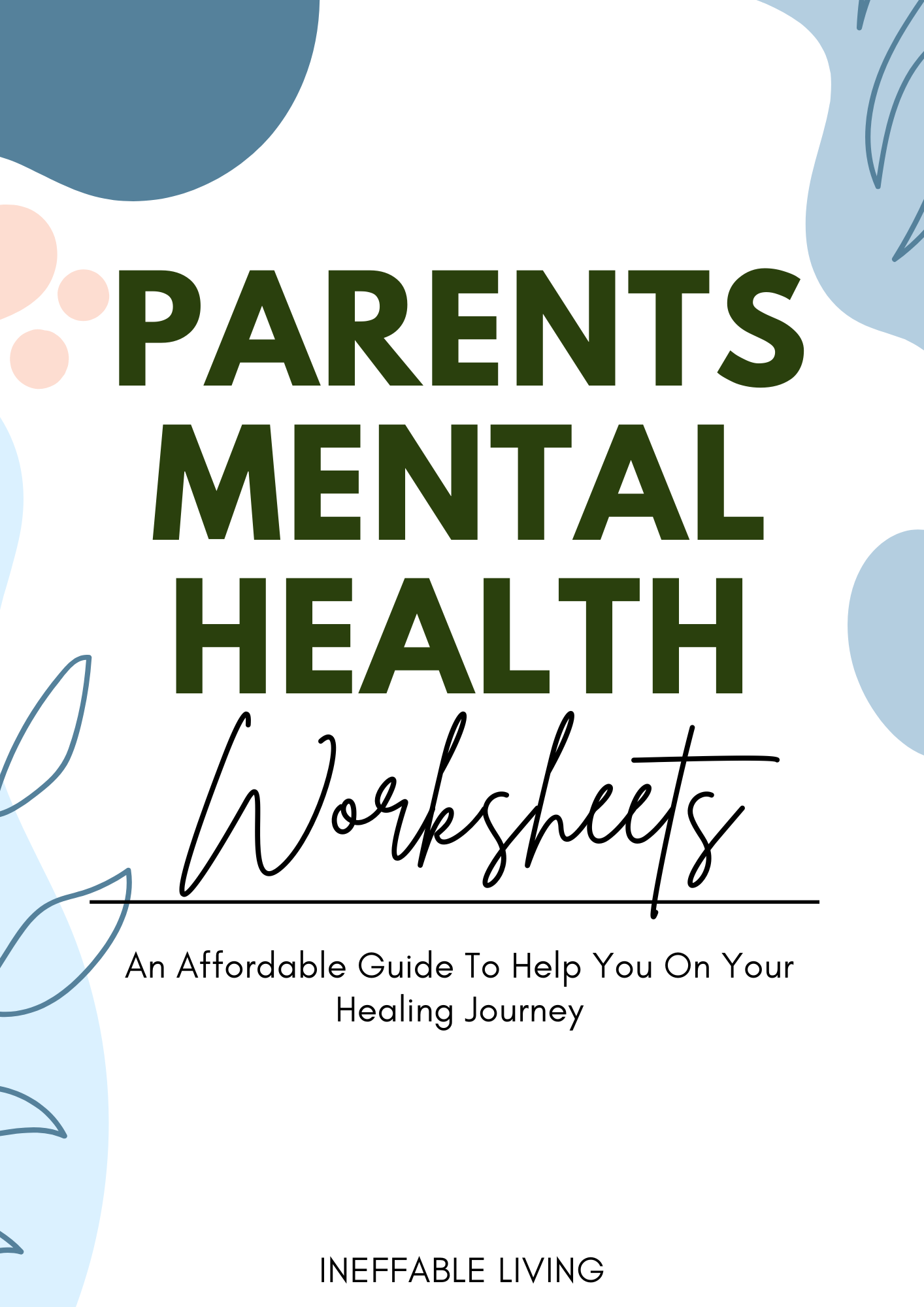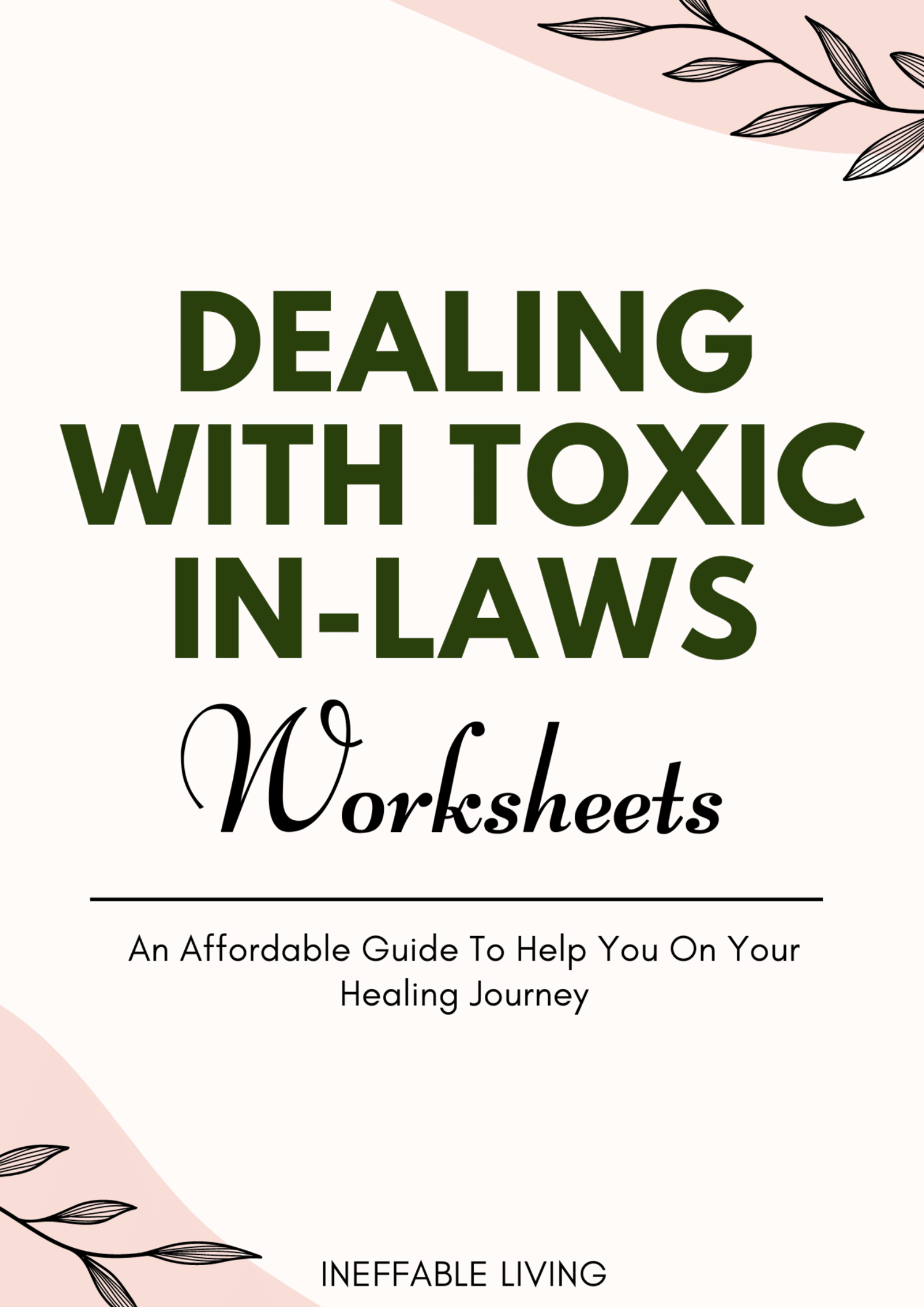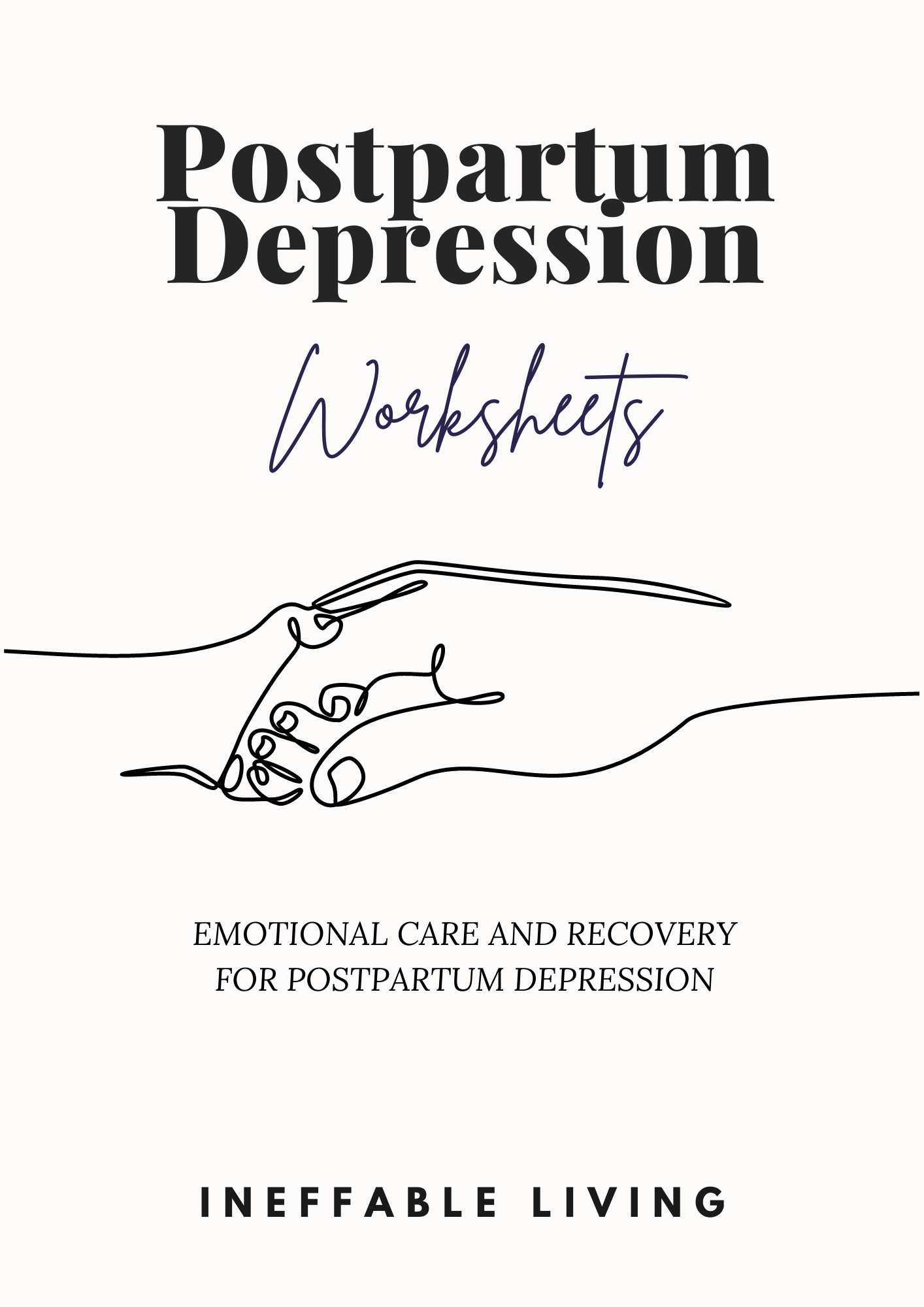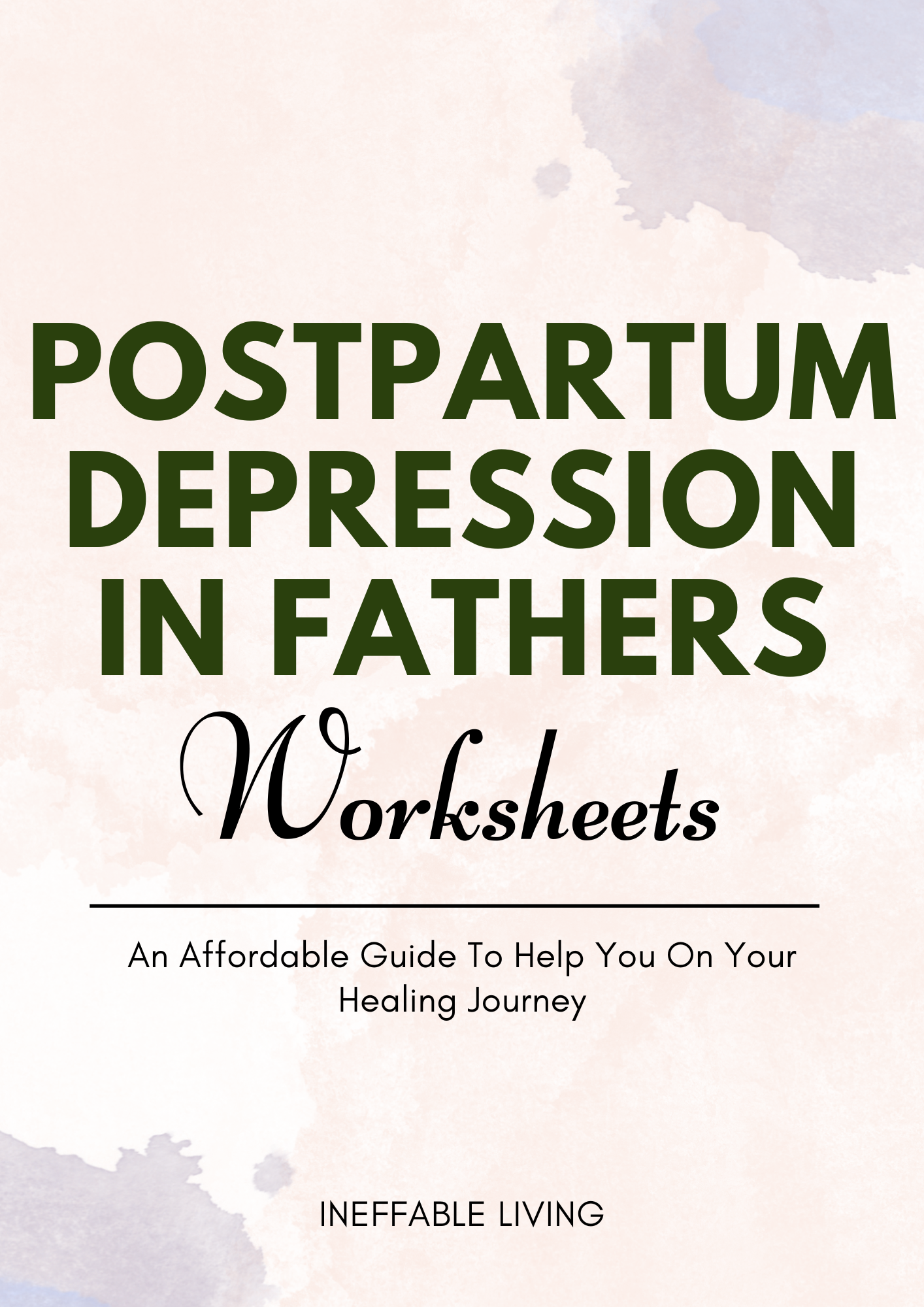Parenting is beautiful — but it’s also exhausting. When you’re running on empty and still expected to show up, give, respond, soothe, manage, and hold it all together, burnout isn’t just likely — it’s inevitable.
If you’ve ever thought, “I love my kids, but I’m so drained I don’t even recognize myself anymore,” you’re not alone. And you don’t have to power through without support.
These carefully designed worksheets can help you check in with yourself, process the emotional load, and begin to restore your energy and peace of mind.
1. Parents Mental Health Worksheets
(+65 Pages of Practical and Engaging Exercises)
These worksheets help you check in with yourself as a parent — mentally, emotionally, and physically. They guide you through naming your burnout triggers, working through guilt, and creating tiny, manageable self-care plans you can actually stick to.
2. Dealing with Toxic In-Laws Worksheets
(+40 pages of evidence based exercises and techniques)
Toxic in-laws can silently wreck your peace and drain your patience. These worksheets guide you through setting boundaries, communicating clearly, and protecting your family space without being consumed by guilt or conflict.
3. Pregnancy Mental Health Worksheets
(+55 pages of evidence based exercises and techniques)
Pregnancy comes with emotional highs and lows — and that’s okay. These worksheets offer a safe space to process fears, changes, and pressures you might not feel comfortable voicing aloud.
4. Postpartum Depression Worksheets
(+25 Pages of exercises and prompts)
Whether you’re a few weeks or many months postpartum, these worksheets help you face difficult emotions with honesty and compassion — no judgment, no sugarcoating.
5. Postpartum Depression in Fathers Worksheets
+65 Pages of Practical and Engaging Exercises
Postpartum struggles aren’t limited to moms. These worksheets give fathers space to explore the emotional and mental challenges of new parenthood — something rarely talked about, but deeply needed.
Why Use Mental Health Worksheets?
Worksheets give structure to your healing and make emotional growth more manageable.
Here’s why they’re effective:
- Clarify your thoughts – Writing things down helps you make sense of complex emotions.
- Build emotional skills – Worksheets guide you through tools like boundary-setting, self-talk, and emotion regulation.
- Create a safe space – You can process privately, at your own pace, without judgment.
- Track your progress – Over time, you’ll see how your mindset and responses evolve.
- Feel empowered – They help you take small, doable steps toward feeling better.
- Use anytime – No appointments needed — you can turn to them whenever you need support.
Ready to Reclaim Your Energy and Mental Clarity?
Parenting will always be demanding — but you don’t have to do it empty and unseen. These worksheets were created for real parents with real emotional needs. Use them in your quiet moments, or during chaotic ones — they’re here for you.

Read Testimonials –> HERE
FAQs
Can I use the worksheets with my therapy clients?
Absolutely! The worksheets are meant for both, personal and professional use.
The worksheets are copyrighted so you can’t resell them or upload them publicly online. But you can share them with your clients.
Can I make changes to the files before handing them down to my clients?
Absolutely! You can convert your PDF files to word documents and make changes using free tools like pdf2doc.com.
How do I know if these worksheets are right for me?
These worksheets are perfect for anyone who needs an affordable, yet effective strategies to help them increase their self-awareness and work on their own issues – alone or with their therapist.
These worksheets are not a one-size-fits-all approach and are in no way meant to imply that change is as one-dimensional as a worksheet.
So choose the techniques and suggestions that apply to you and tailor the exercises in ways that will be helpful to you.
Can I use these worksheets on my own or should I seek professional guidance?
These worksheets are designed to be helpful on their own. However, seeking professional guidance from a mental health professional can increase their effectiveness.
How do I use mental health worksheets effectively?
1. Set aside dedicated time: Find a quiet and comfortable space where you can focus on yourself without distractions. Treat this as valuable self-care time, just like you would for any other important appointment.
2. Choose the right worksheet: There are numerous worksheets available, each offering unique exercises and prompts. Consider your specific needs and goals. Are you looking to enhance self-awareness, manage stress, or improve your relationships? Select a worksheet that aligns with your current focus.
3. Read instructions carefully: Take a moment to fully understand the purpose and instructions of the worksheet. Clarify any questions you may have before proceeding.
4. Engage in self-reflection: Set pen to paper and let your thoughts flow. Don’t worry about perfection or judgment – this is your private space to express yourself authentically. Be honest with yourself and explore your emotions, thoughts, and experiences without restraint.
5. Reflect on your insights: After completing the worksheet, take some time to reflect on what you have learned about yourself. Consider any patterns or triggers that impact your mental well-being. Identify areas where you can implement positive changes or coping strategies.
6. Incorporate your insights into daily life: The true value of mental health worksheets lies in applying your newfound awareness and insights to your everyday life. Consider how you can integrate these insights into your relationships, self-care routines, and overall well-being.
When should I see a therapist?
These worksheets are designed to help you better understand yourself, your distress, and your difficulties.
You can use it in conjunction with therapy or as a stand-alone guide to manage your distress.
These worksheets can be considered a low-intensity intervention. They’re perfect for those who are struggling with mild to moderate issues.
In mental health, mild to moderate symptoms are those that are severe enough to be distressing to you, but moderate enough that you can still manage most of your daily activities.
If you feel very overwhelmed by any of the exercises in these worksheets, this might be a sign that your symptoms are too severe for you to do the work by yourself.
A therapist will help you at your own pace and provide support and encouragement throughout the process.
Do you have more questions? Check this page –> FAQs




